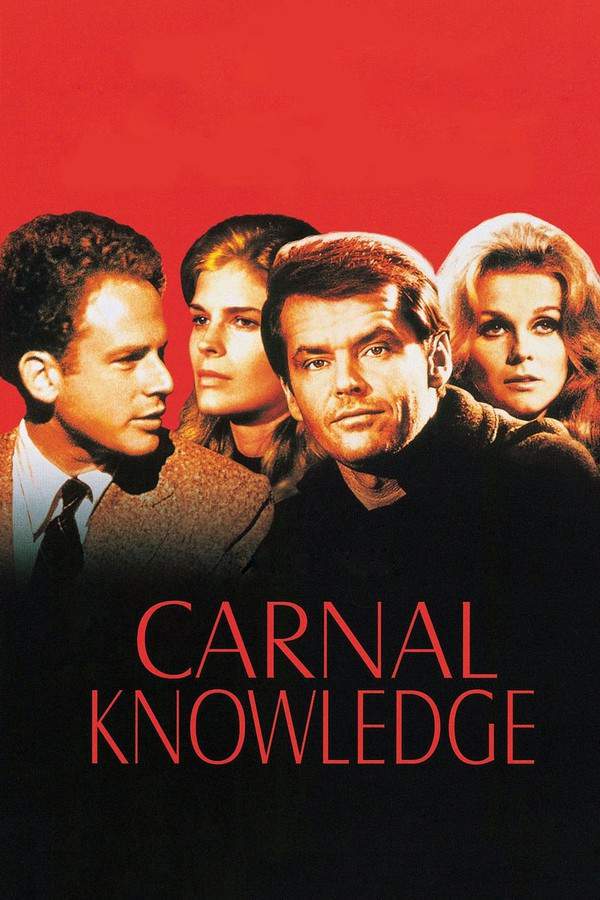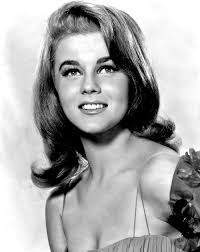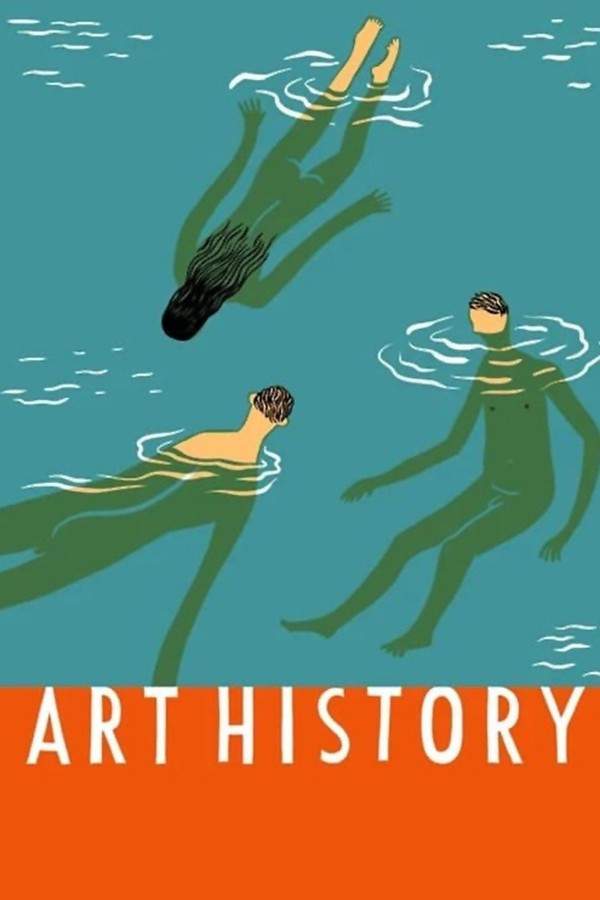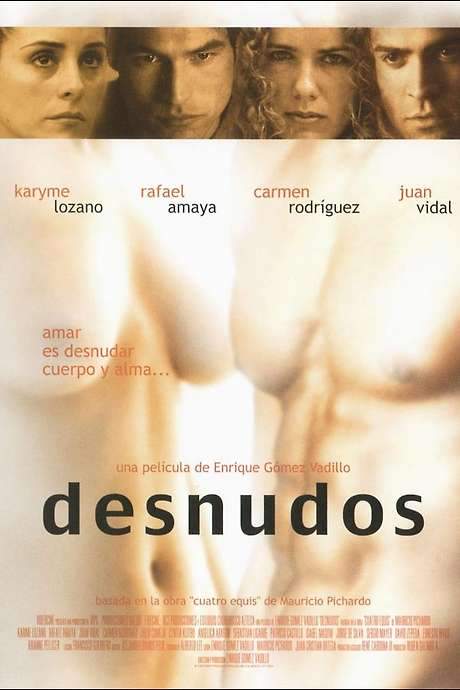Carnal Knowledge 1971

Sandy and Jonathan, charming roommates in 1940s America, find their lives entangled in a web of love, loyalty, and desire. As they pursue various relationships, Sandy’s naivete is challenged by unexpected betrayals. Meanwhile, Jonathan's seemingly carefree and hedonistic lifestyle hides a deeper yearning for genuine connection. The film explores themes of masculinity, moral boundaries, and the complicated nature of intimacy and infidelity within the backdrop of a changing era.
Does Carnal Knowledge have end credit scenes?
No!
Carnal Knowledge does not have end credit scenes. You can leave when the credits roll.
Meet the Full Cast and Actors of Carnal Knowledge
Explore the complete cast of Carnal Knowledge, including both lead and supporting actors. Learn who plays each character, discover their past roles and achievements, and find out what makes this ensemble cast stand out in the world of film and television.
External Links and Streaming Options
Discover where to watch Carnal Knowledge online, including streaming platforms, rental options, and official sources. Compare reviews, ratings, and in-depth movie information across sites like IMDb, TMDb, Wikipedia or Rotten Tomatoes.
Ratings and Reviews for Carnal Knowledge
See how Carnal Knowledge is rated across major platforms like IMDb, Metacritic, and TMDb. Compare audience scores and critic reviews to understand where Carnal Knowledge stands among top-rated movies in its genre.

77
Metascore
7.4
User Score


88%
TOMATOMETER

72%
User Score

66
%
User Score
Take the Ultimate Carnal Knowledge Movie Quiz
Challenge your knowledge of Carnal Knowledge with this fun and interactive movie quiz. Test yourself on key plot points, iconic characters, hidden details, and memorable moments to see how well you really know the film.
Exploring Carnal Knowledge: Test your knowledge of the intricate relationships and themes in the film 'Carnal Knowledge'.
Who is Sandy's college roommate?
Sandy
Jonathan
Bobbie
Cindy
Show hint
Awards & Nominations for Carnal Knowledge
Discover all the awards and nominations received by Carnal Knowledge, from Oscars to film festival honors. Learn how Carnal Knowledge and its cast and crew have been recognized by critics and the industry alike.
44th Academy Awards 1972

29th Golden Globe Awards 1972

Best Supporting Performance in a Motion Picture – Drama, Comedy or Musical (Supporting Actor)
Art Garfunkel
Best Supporting Performance in a Motion Picture – Drama, Comedy or Musical (Supporting Actress)
Ann-MargretFull Plot Summary and Ending Explained for Carnal Knowledge
Read the complete plot summary of Carnal Knowledge, including all major events, twists, and the full ending explained in detail. Explore key characters, themes, hidden meanings, and everything you need to understand the story from beginning to end.
As the post-war landscape of the late 1940s began to unfold against the backdrop of Amherst College, an unexpected encounter between student Sandy and coed Susan ignited a romance that would carry them through the years. Their initial bond, centered on mutual respect and trust, showcased Susan’s hesitance to give in to physical desire, highlighting her dedication to a deeper emotional connection. However, unbeknownst to Sandy, his roommate Jonathan had his own intentions regarding Susan. Driven by his charming yet womanizing ways, Jonathan managed to allure her into an ill-fated night of passion, ultimately spiraling into a toxic breakup that would leave lasting scars.
Years later, the ripples of their college days began to surface. Sandy and Susan exchanged vows, while Jonathan continued his seemingly endless pursuit of the ideal partner. His relationship with Bobbie, a breathtaking yet superficial beauty, soon faltered as he grew weary of her shallow demeanor. Their romance deteriorated rapidly, marked by Jonathan’s verbal tirades and belittling comments, which pushed Bobbie into a deep depression.
Simultaneously, Sandy’s marriage to Susan also faced significant challenges. Their once passionate relationship had become lackluster, even as they tried earnestly to rekindle their intimacy. Sandy began to reflect on the nature of sex, viewing it less as an expression of love and more as a mere biological obligation. Eventually, he made the difficult decision to end things with Susan, seeking solace in a new relationship with Cindy.
Fate intervened, bringing these former college acquaintances together once more at Jonathan’s apartment. In a private conversation, Sandy confided to Jonathan about his growing frustrations regarding Cindy. Ever the provocateur, Jonathan suggested a radical remedy—why not swap partners for a change? While Sandy sought out Bobbie in the bedroom, Cindy found herself dancing with Jonathan. She admonished him for pursuing Sandy right in front of him, yet hinted at her own willingness to forge a new connection with him independently.
In the midst of this emotional turbulence, tragedy struck. Struggling with her earlier confrontations with Jonathan about their lack of commitment, Bobbie attempted suicide, her desperate plea for help answered by Sandy, who rushed her to the hospital’s intensive care unit. As the consequences of their past choices unfolded, it became evident that these characters were forever affected by their intertwined lives, influencing their relationships and personal growth.
As the years rolled on, Jonathan re-entered the scene, this time presenting a slideshow to Sandy and his 18-year-old girlfriend, Jennifer. Titled “Ballbusters on Parade,” Jonathan’s visually captivating narrative chronicled his romantic escapades over the decades. With a blend of nostalgia and cringe-worthy moments, he flicked through images, pausing with an uncomfortable hesitation on a particularly revealing moment featuring Susan. Sandy picked up on Jonathan’s subtle discomfort, hinting at the convoluted history between them. The slideshow included poignant remarks about Bobbie, now divorced and receiving alimony, deepening the emotional weight of their shared history. Jennifer, visibly shaken by the unvarnished glimpse into Jonathan’s past, left the scene in tears.
As time passed, while Jonathan’s professional success blossomed, his personal life took a perplexing turn. He found himself in the company of a prostitute, engaging in a scripted dialogue that delved into the intricate dynamics between men and women. Concluding their conversation, the prostitute delivered a captivating monologue, authored by Jonathan himself, which sang his praises and emphasized his perceived “perfection.” This strange ritual served as a unique coping mechanism for him, allowing Jonathan to regain a semblance of control over his desires in a world where he felt increasingly adrift. The stark contrast between Jonathan’s professional triumphs and his personal struggles painted a profound picture of the human experience, exposing the vulnerabilities and yearnings that often lurk beneath a confident exterior.
Uncover the Details: Timeline, Characters, Themes, and Beyond!

Coming soon on iOS and Android
The Plot Explained Mobile App
From blockbusters to hidden gems — dive into movie stories anytime, anywhere. Save your favorites, discover plots faster, and never miss a twist again.
Sign up to be the first to know when we launch. Your email stays private — always.
Watch Trailers, Clips & Behind-the-Scenes for Carnal Knowledge
Watch official trailers, exclusive clips, cast interviews, and behind-the-scenes footage from Carnal Knowledge. Dive deeper into the making of the film, its standout moments, and key production insights.
Carnal Knowledge Themes and Keywords
Discover the central themes, ideas, and keywords that define the movie’s story, tone, and message. Analyze the film’s deeper meanings, genre influences, and recurring concepts.
Carnal Knowledge Other Names and Titles
Explore the various alternative titles, translations, and other names used for Carnal Knowledge across different regions and languages. Understand how the film is marketed and recognized worldwide.
Similar Movies To Carnal Knowledge You Should Know About
Browse a curated list of movies similar in genre, tone, characters, or story structure. Discover new titles like the one you're watching, perfect for fans of related plots, vibes, or cinematic styles.
Quick Links: Summary, Cast, Ratings, More

What's After the Movie?
Not sure whether to stay after the credits? Find out!
Explore Our Movie Platform
New Movie Releases (2026)
Famous Movie Actors
Top Film Production Studios
Movie Plot Summaries & Endings
Major Movie Awards & Winners
Best Concert Films & Music Documentaries
Movie Collections and Curated Lists
© 2026 What's After the Movie. All rights reserved.



































